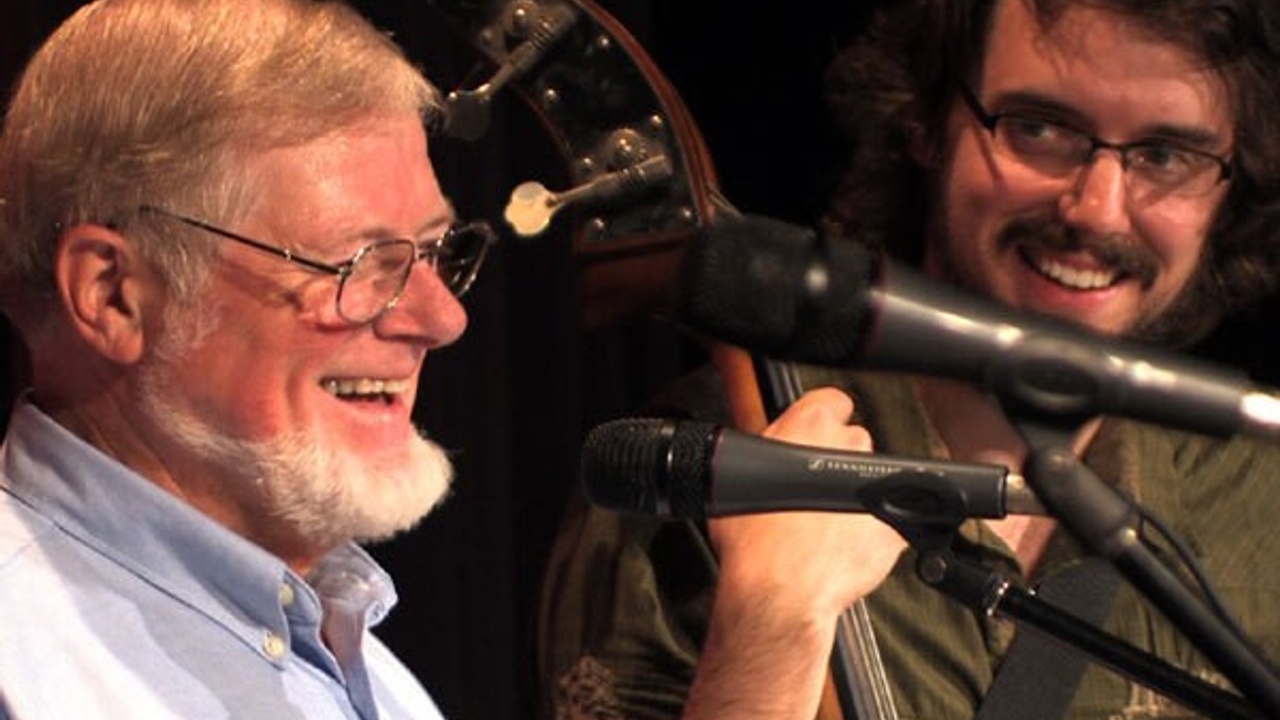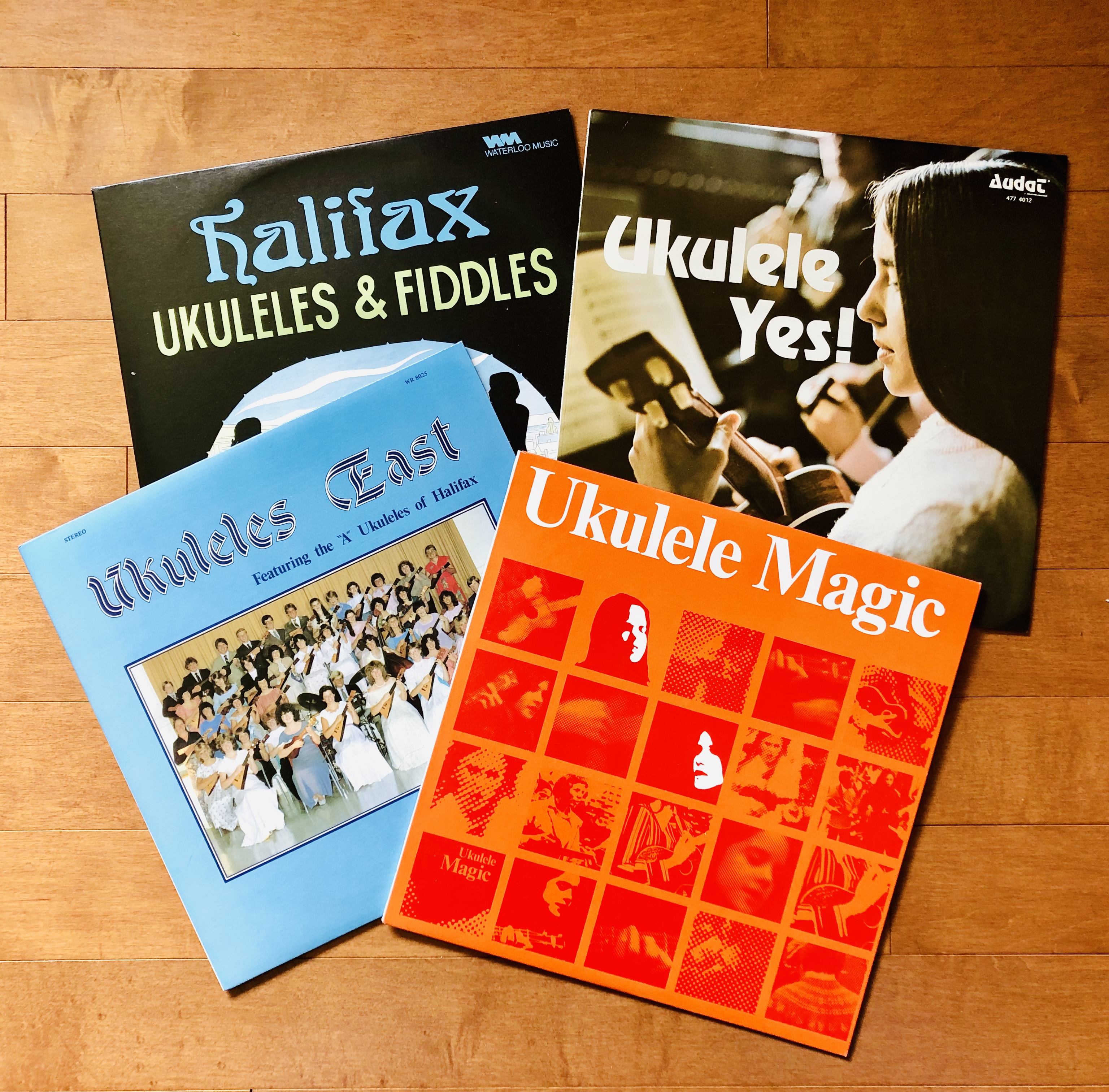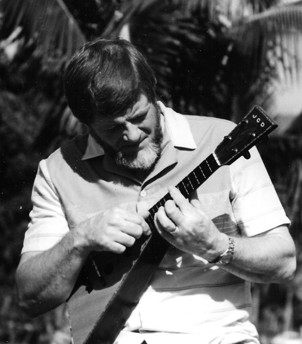The Godfather of Canadian Ukulele: J. Chalmers Doane (Part Two)

In part two of our interview with Canada’s godfather of ukulele, J. Chalmers Doane continues sharing his experience of bringing our favourite instrument into schools and communities across Canada.
Uketropolis Team Member Zsolt Schäfer had the opportunity to have a conversation with the man who introduced ukulele into Canadian music education. You can catch up on part one here.
Do you have a rough estimate of how many students went through the program?
Quite early in the game, I started doing workshops for adults. Outside of school, I called them ukulele workshops and I started traveling from one province to another. I started teaching in all ten provinces. I started first expanding to the ones close to me: Prince Edward Island, New Brunswick and Nova Scotia, and Newfoundland. Then I started going across Canada to Ontario, eventually I ended up in British Columbia, and I filled in the middle with Saskatchewan. I did a little bit of an attempt at Manitoba, but I only think I taught one school, one session with people there. But everywhere else, as I got programs started, I got the universities to work with me. In fairly short order, I had programs going right across Canada.
You're asking me how many people were involved in it. I wrote a book called Classroom Ukulele and, at a certain point in time, they gave me a plaque from the company when they had sold the first 50,000 books. We estimate that we sold around a hundred thousand books. We estimated that there were 50,000 kids in the schools playing ukulele across Canada and 2300 in Halifax alone.
(If you're looking for online ukulele lessons, then be sure to head to Uketropolis, offering the best ukulele course out there!)
That's amazing. But circling back a bit: where did the funds for all this come from?
This is an interesting story because I didn't believe in fundraisers that were like pantry sales and carwash and all that stuff ‘cause they took up too much time. I believed in doing musical things. So when I decided to make a record. I knew some people in the business from my previous connections. So we went into a studio and we made a recording and it was really a professional recording in that we had top pros doing all the audio. So I ordered a hundred records and I handed out each kid in the A group five records to go and sell.
If you love jazz and want to learn jazz on the ukulele online, then be sure to check out Ukulele Jazz, our online course of 12+ lessons!

Like a cookie sale?
Exactly! I figured this was mostly for their parents, grandparents and uncles. Now there's a man in the adjacent town across the harbour in Dartmouth that was on the radio every morning. Somebody gave him one of these records and he went nuts with it. He started playing it every single morning! He was playing all the pieces on it, saying what a great thing this was, and how Chalmers Doane was doing this and doing that. Well, we sold the hundred records in about a week. All of a sudden I realized I had an alligator by the tail here. I printed a thousand and then I gave each kid fifty records and sent them out into the neighbourhood. We sold them, no problem. Before I was finished, I had made either eight or nine records in the next ten years. They sold extremely well. We did most of our fundraising with records.
We chartered an airplane one time to go out West. It was $24,000 and we had enough money in the bank to just write a cheque for. We didn't have any problems with the fundraising because we were raising so much this way.
There were stories about that because school kids aren't supposed to be allowed to raise money like that. But I had to argue with the people on the school board who incidentally were my friends; one of my best friends was the chairman. And they were, they said, you can't do that, you can't raise that much money. Then I said, well, yeah, we can, and it's your job to make it legal if you think it's not. You're a lawyer, so get busy.
It's way better than us walking around the streets having a sandwich or fudge sale or something like that. Our top jazz band made a recording on CBC, which we sold to the Netherlands. They paid to own this recording and we got something like $15,000 for a half-hour program.
So when you talk about the albums, was this a fixed set of people or just ever-changing members of the A group?
Ever-changing, yes. You see each year we had a music department graduation of our own, just like the public school graduation. We had our own evening where the kids who were leaving the program got awards and recognition. The music department was getting quite large now. Matter of fact, it got so large that we took over a whole school in the city and we had it all refurbished to have rooms in it for the kids to have all these different groups.
For example, something that you wouldn't expect: we had a percussion teacher. That's all he did. He was there to teach percussion and conduct percussion ensembles. He had two rooms with xylophone, marimba, timpani and all these things. We had a percussion ensemble that met every week.
The percussion ensemble was one, the symphony orchestra was another. It was a full symphonic orchestra but we featured it like the Boston Pops: we played pop music with that orchestra. We had junior, intermediate and senior jazz ensembles. We had choirs that were beginning and choirs that were large groups. We had the top singers in the top vocal ensembles.

We had ukulele ensembles and we had what we called the A group: the top 46 kids conducted by me every week. They are the ones that made the records and they are the ones that did most of the travelling.
Then we had what we call B1 That was right underneath the A group, and this would be about 40 kids and they would have one of my best teachers and they would have a percussion and a string bass player, we had B2 B3, B4, B5 and B6 as the beginning ensembles.
Some kids didn't want to play in an ensemble. They didn't have to, but they had to audition for all these ensembles and each year they could move up. The big thing was that the B1 kids would audition with me to get into the A group. We would lose perhaps five or six kids every year in the A group, so we would add five or six and we expanded the group till it hit 46 kids. 46 because that's how many seats were on those big buses that we used to rent; we couldn't take any more.
I taught the kids a lot more than ukulele music.
We did a lot of things with the A group. But one of the most spectacular was a Canadian tour with the A group. We had a really good program. It was about an hour and 10 minutes. We played 36 concerts between Halifax and Vancouver and we went right across the country by bus.
It was a terrific success. I taught the kids a lot more than ukulele music. For example, at a certain point in the program about eight or ten of them reached under their chair and pulled a violin out. We had a hoedown where the kids played fiddle. As another example, we also played Leroy Anderson's “The typewriter song”.
We did that in the middle of our concert with the percussion, in the middle of the stage playing. They played all those fast parts on the ukulele using thumb tremolo how Herb Ohta (Ohta-San) from Hawaii taught me.
Any new projects you are working on?
I just stay around home, teach a little bit here and wait for the virus to disappear again. But I have a band and I play every week and also for senior residences. We have quite a few contracts for that. I'm still recording a little bit. My daughter in Toronto is doing a lot of ukulele. I work with her still a bit and she's become a very good player as well. Melanie has some of my best students from Halifax actually teaching for her so she's got some of the old guard who were in the ukulele program. They understand that the philosophy of ukulele is really almost as important as the music.
My son plays as well. My oldest daughter is a very good ukulele player and she's doing a program in Sydney, Nova Scotia. She's the one who writes books. We've just got a new book coming out soon that she and I have written.
I'm an old geezer now and I still play and I still love to play and so on, but, I've had my day in the sun and, I'm trying to promote all the young people now that are my offspring.
I did my biggest concert in 1980 and that's the year James Hill was born. I was getting near the end of my time in Halifax. I had another agenda that I was going to go and do something else. I wanted to do a really big thing. In Halifax they had built a hockey arena that seated 10,000 people. So I decided to do a concert in the Metro Centre. That's what they used to call it. It was going to involve all the children that were studying music in the Halifax school system. It didn't include every single child, but it included many and mostly all the ones from grade three and up.
The ukulele has a philosophy of friendliness...I tried to treat it that way with the children.
I put together all these groups and it took a year to prepare. We had 3,600 kids in the show and we put the concert on in under two hours. I rented a “mile of buses” so if they parked end on end it was a mile long. I rented them to bring these kids and the audience to the concerts.
A piano number involved twenty pianos in a circle and a grand piano in the middle with two kids at each piano and it was accompanied by 200-piece orchestra. The kids played The Entertainer by Scott Joplin with all those pianos and we backed it up with the orchestra, which one of my teachers arranged for and it was a full symphonic sound.
That was just one number in the concert! Another number was 125 cellos on the stage playing together in unison. Another number was 800 ukuleles and I conducted all those kids playing ukulele.
Then we had the percussion ensemble playing background while the elementary kids did all these formations doing circles clapping their hands and doing singing games. All those singing games we accompanied with orchestra and the percussion ensemble on the floor of the ice rink. We had around 600 people in the choir.
We had all the music teachers on the stage at one point: forty or fifty of them. We had thirteen sets of drums on stage for a big jazz number with the jazz band. Every number was gargantuan and we filled the place. There were 10,000 people there that night.
We didn't let anybody drive their car downtown. Every parent went to his own school and we had a bus for the parents and a bus for the kids. We practiced it once in the afternoon, believe it or not - brought all those kids down in the afternoon, took them all back home and we proved that we could do it. So then evening it was a piece of cake. Parents all left their cars at each school and they drove everybody in and there were no hassles at the end of the concert, we had it all figured out. Don't look for your kid, look for your bus number, get on your bus and you'll meet your kid at your home school when you get home.
Quite a few members of our local symphony came to me and asked me if they could play in the orchestra that night. I said, of course you can. So we had some pros sitting in with the amateurs for that night, about 10 of them.
That was Spring Festival '80 and I have it all on tape. We sold us to the CBC. They did it with five cameras and we made enough money to pay for the whole thing and have a little bit left over. It was a huge, huge night. CBC did a special on it on the national broadcasting network.
Do you have any wise words to share?
The philosophy of ukulele is really almost as important as the music. Now, I realize it's not exactly the same thing, but there's a very beautiful philosophy with the ukulele. For example, you hear people talking about wrong notes. There are no wrong notes. There's no such thing as a wrong note. Do you see this ukulele? Now play chromatic scale. Did you hear any wrong notes? Show me a wrong note on a ukulele. Where is it? You may play one in the wrong time or because of the lack of practice miss a note once in a while or play somewhere where you didn't intend to play. But you can't do anything about what you've done. All you can do is correct the next one.
The ukulele has a philosophy of friendliness and I learned that way from a gift. My mother started me. I tried to treat it that way with the children. It's not bombastic, it's not negative. It's not promoting your own self-importance, it's playing music and to try to play musically and try to play to please people. I've heard many jazz people saying don't try to please your audience, please yourself. See, I disagree with that 100%. Music is to be played for an audience. Now it may be for the player, sure. If you're playing in a group and you all play for each other, sure. You play for each other and gently compete with each other about everything, but it's not a cut-throat business. It's a friendly business and people love to get together and play. Everybody you meet isn't James Hill or Chalmers Doane or Herb Ohta, but the ukulele can be played by everybody if they want to. All you have to do is get one to start practicing.
I believe that music is extremely complex but learning to do it is extremely simple.
Now I have a huge list of things that I've collected that I think music is and I try to teach about them. Right now I'm trying to compile a list of everything I know about music into one list. I'm thinking that I can put all of this on one piece of paper, everything I've ever found about music. I call these musical axioms.
I believe that music is extremely complex but learning to do it is extremely simple. If you take a sensible approach to it: you start and you just keep on chipping away.
So yeah, you can guess from my chatter here that I love the uke and I love what it does for people. I don't think it's the only or the best instrument in the world. I love to play the clarinet and I played with my band. I love xylophone. I majored in trombone. I love the saxophone. When I was studying, I played in a jazz band for three years. Every weekend playing string bass. I love bass and I have everybody that will listen to me get them on a bass.
But I'm very much in love with musical instruments. And music.
J. Chalmers Doane is a musician and retired music educator who introduced thousands of children and youth to the beauty of music making, with a particular interest in the ukulele as an accessible and versatile instrument for all. www.ChalmersDoane.com
Uketropolis is a leading online ukulele course provider, with beginner ukulele courses, intermediate lessons, jazz lessons and more, all available online!
Stay in the Uke Loop!
Subscribe to the Uketropolis Gazette. Free arrangements, tips, interviews and more delivered to your inbox.


